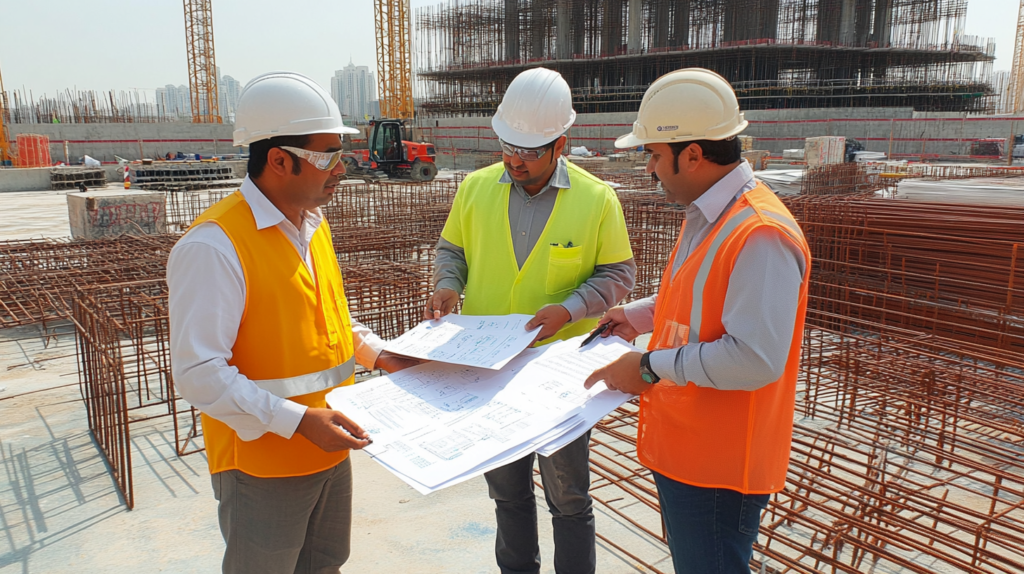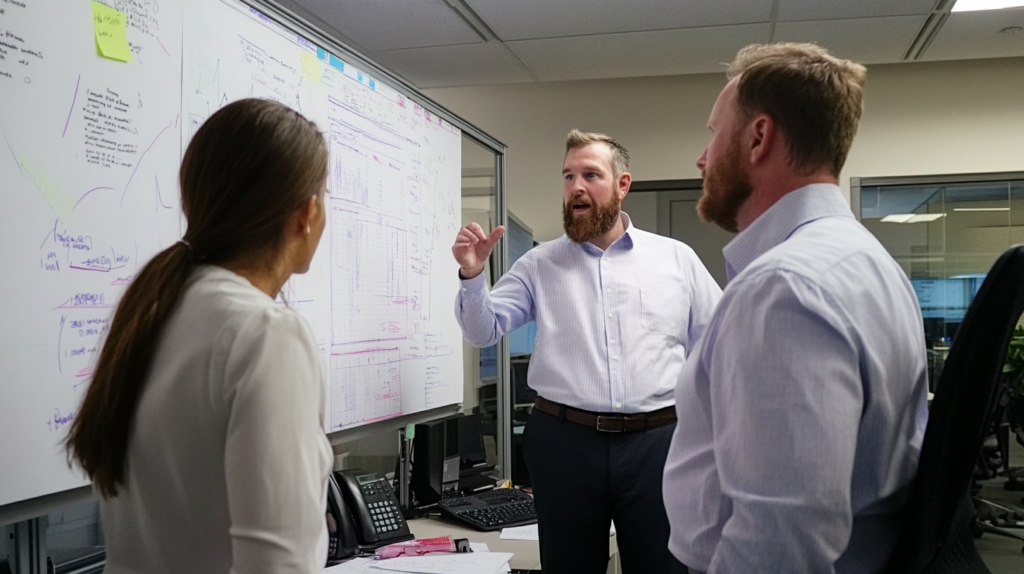Master Project Cost Estimating for Flawless Budget Control

In the world of project management, effective project cost estimating is the cornerstone of successful planning and execution. Whether you are managing a construction project, a software rollout, or a new product launch, the ability to accurately forecast costs can make or break your project. Knowing how much resources you need, understanding estimation methodologies, and keeping costs under control are all crucial components of project success. In this comprehensive guide, we will explore project cost estimating in depth, focusing on best practices, tools, techniques, and methods that will empower you to manage your project finances with confidence.
Table of Contents
- The Importance of Project Cost Estimating
- Techniques for Project Cost Estimation
- Construction Cost Estimating
- Budget Forecasting in Project Planning
- Cost Estimation Tools and Software
- Improving Estimation Accuracy
- Cost Estimation Best Practices
- Deskcove for Project Management
- Frequently Asked Questions
The Importance of Project Cost Estimating
Project cost estimating is crucial for several reasons. It ensures that a project remains financially feasible, provides a baseline for budget control, and helps manage stakeholders’ expectations. Understanding the value of accurate estimates allows you to allocate resources appropriately and avoid financial pitfalls.
Why Project Cost Estimating Matters
Accurate project cost estimating allows project managers to make informed decisions and prioritize effectively. It helps identify risks early, enabling proactive measures to mitigate them. An effective cost estimate also forms the foundation for setting realistic project timelines.
Impacts on Stakeholder Management
Stakeholders often want to understand the financial aspects of a project before giving their full commitment. Cost estimates help in communicating the scope, scale, and feasibility of a project, keeping everyone on the same page regarding budget expectations.
Cost Control and Budgeting
Once you establish a solid project cost estimate, it serves as a guideline for your project’s budget. This becomes instrumental in cost management and in ensuring that all project activities are aligned to financial expectations, reducing the likelihood of budget overruns.
Techniques for Project Cost Estimation
To estimate project costs effectively, managers employ various cost estimation techniques depending on the project’s scope and complexity. Choosing the appropriate method is key to accuracy and reliability.
Analogous Estimating
Analogous estimating is a technique that relies on historical data from similar projects. This method is particularly useful during the early stages of a project when detailed information is not available. However, it requires careful adjustment for differences between projects to maintain accuracy.
Bottom-Up Estimating
Bottom-up estimating involves breaking down a project into smaller components and estimating each element individually. This method is often more precise but can be time-consuming. It is best suited for projects with well-defined tasks and deliverables.
Parametric Estimating
Parametric estimating uses statistical data and mathematical models to calculate costs based on project variables. By applying known rates (e.g., cost per unit of output), you can arrive at an estimation that is both accurate and efficient, especially for repetitive processes.
Construction Cost Estimating
For construction projects, cost estimation is particularly challenging because of factors like labor, materials, equipment, and unforeseen site conditions. Employing the right methods and tools can significantly enhance accuracy.
Factors Affecting Construction Cost Estimating
Construction cost estimating is influenced by factors such as material prices, labor availability, project location, and regulatory considerations. Estimators need to gather extensive data to account for these variables effectively.
Cost Management in Construction
Effective cost management is necessary to keep construction projects on track. Regular cost analysis and monitoring help identify discrepancies early, allowing timely corrective actions.
Using Estimation Software
Estimation software tools like CostX or ProEst play a vital role in simplifying the estimation process, offering advanced features for cost breakdown and real-time data integration. These tools help in generating estimates faster and reducing errors.
Budget Forecasting in Project Planning
Budget forecasting is an essential element of project planning, ensuring that you remain on track to meet financial goals. A well-thought-out budget helps in efficient resource allocation and reducing risks.
Importance of Budget Forecasting
Budget forecasting provides an overview of expected costs and cash flow requirements. This helps project managers plan resources effectively and prepare for any financial challenges that may arise during the project lifecycle.
Techniques for Forecasting Costs
Techniques such as trend analysis, expert judgment, and reserve analysis are often used for budget forecasting. Each technique has its strengths, and the choice depends on the project type and the information available.
Integrating Budget Forecasting with Planning
By integrating budget forecasting into the overall project planning process, you can identify and resolve financial discrepancies early. This approach also allows for adjustments in project activities to better align with financial constraints.
Cost Estimation Tools and Software
Cost estimation tools are an essential resource for modern project managers. They facilitate the cost estimation process and improve the accuracy of the forecasts, which leads to better project outcomes.
Popular Cost Estimation Tools
Tools such as Primavera, Microsoft Project, and Deskcove’s own cost estimation software offer robust features for managing project costs. These tools provide templates, real-time cost analysis, and integration with project management systems.
Benefits of Using Software
Using software for cost estimation enhances consistency and accuracy. Automation reduces manual errors, while historical databases allow users to leverage past project data to inform their current estimations.
Choosing the Right Tool
Choosing the right tool depends on the nature of the project and the specific needs of the organization. Factors to consider include user-friendliness, cost, integration capabilities, and customer support.
Improving Estimation Accuracy
Estimation accuracy can be challenging to achieve, especially for complex projects. However, the right approach and methodology can help in enhancing precision.
Regular Review and Adjustments
To improve estimation accuracy, it’s essential to conduct regular reviews of cost estimates throughout the project. Revisiting assumptions and integrating updated information can significantly improve the precision of your estimates.
Leveraging Expert Judgment
Expert judgment plays a vital role in refining estimates, especially when project conditions are unique or uncertain. Experienced professionals bring valuable insights that can highlight potential areas of cost deviation.
Use of Historical Data
Relying on historical data from previous similar projects can provide a realistic basis for estimating current project costs. This data helps in fine-tuning estimates and mitigating unforeseen variances.
Cost Estimation Best Practices
Cost estimation best practices are crucial for maintaining the accuracy and reliability of estimates, ultimately leading to successful project delivery within budget.
Establishing a Clear Scope
Establishing a clear project scope helps in understanding what exactly needs to be estimated, which is crucial for cost accuracy. Without a well-defined scope, estimates are likely to deviate significantly from reality.
Using Standardized Templates
Standardized templates make cost estimation consistent and reduce variability. Many cost estimation tools offer templates that you can customize based on project needs, thus enhancing the reliability of your estimates.
Maintaining Transparency with Stakeholders
Maintaining transparency with stakeholders about cost estimation methods and assumptions helps build trust and prevents misunderstandings. Clearly communicating potential risks ensures everyone is aligned on expectations.
Deskcove for Project Management
Deskcove offers comprehensive project management solutions that include advanced cost estimation tools. With Deskcove, project managers can leverage customizable templates, real-time analytics, and integration with financial planning modules to ensure the accuracy of cost estimates. Deskcove also supports collaboration between teams, providing a unified platform for project planning, budgeting, and financial oversight.
Frequently Asked Questions
What is project cost estimating?
Project cost estimating is the process of predicting the financial resources required for a project. It involves calculating labor, materials, equipment, and other related costs to provide an overall budget for project execution.
Why is project cost estimating important?
Cost estimating is vital for ensuring that a project is financially feasible and aligns with the allocated budget. It helps in resource allocation, risk management, and effective stakeholder communication.
What are the common methods of cost estimation?
Common methods include analogous estimating, bottom-up estimating, and parametric estimating. Each method has its unique approach to calculating project costs, depending on the level of detail and available data.
How can Deskcove help with project cost estimation?
Deskcove provides advanced cost estimation tools, customizable templates, and real-time analytics to improve the accuracy of project cost estimates. It also integrates with other project management tools for streamlined budgeting and financial planning.


